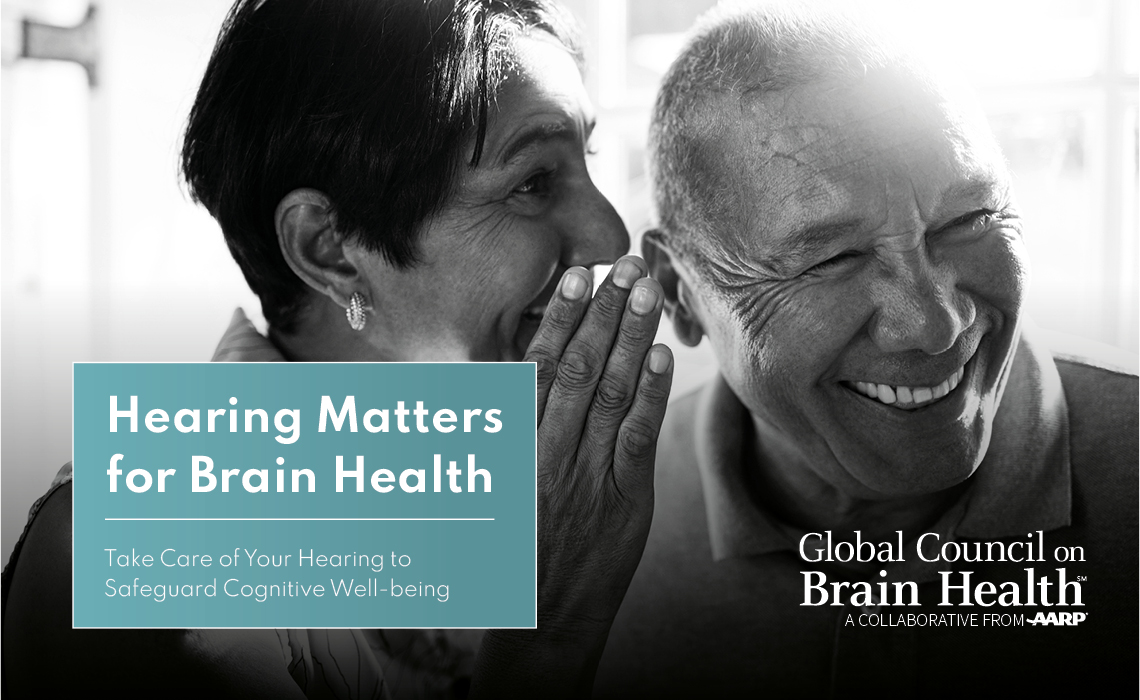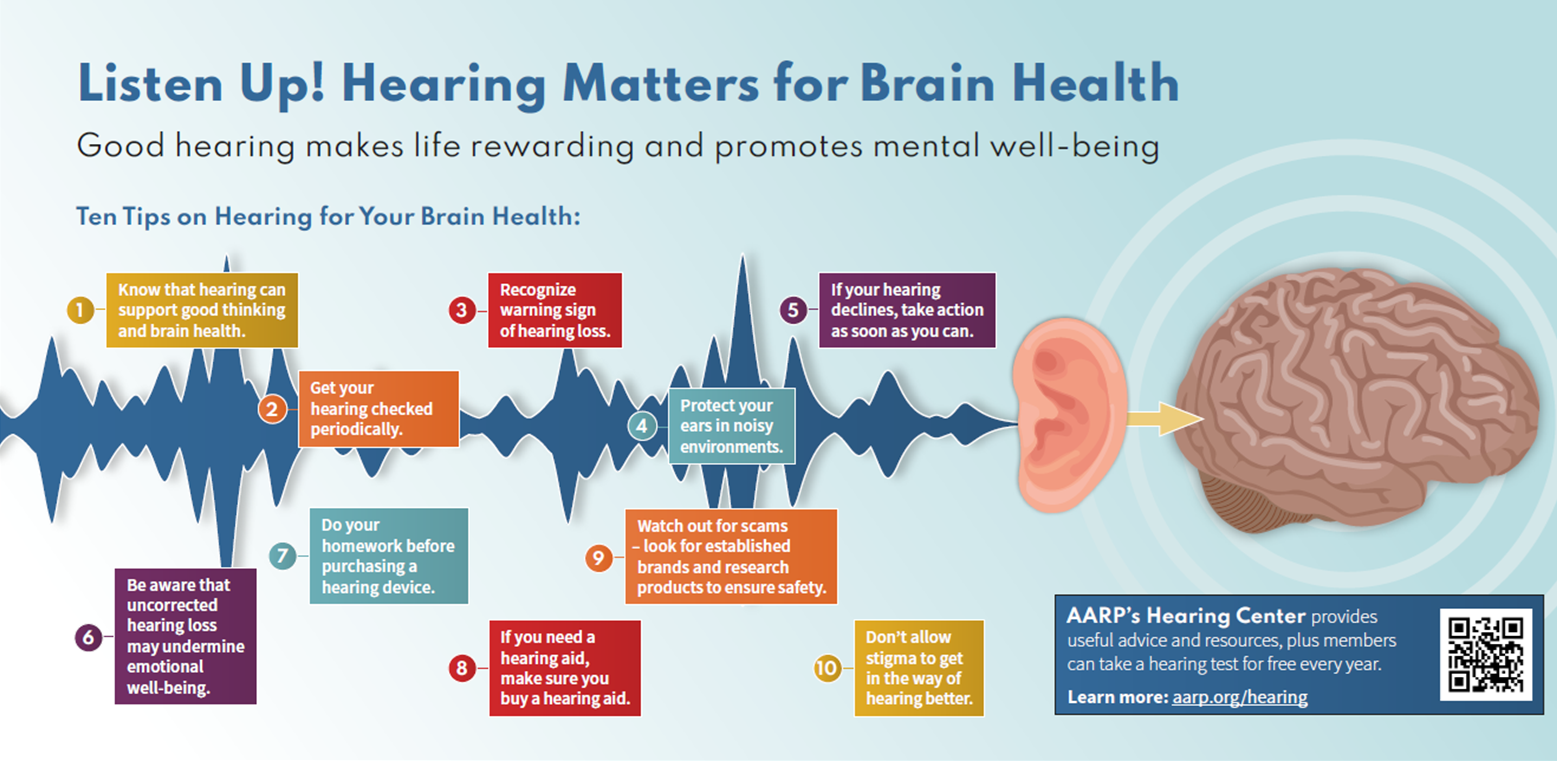The Global Council on Brain Health (GCBH) has released a Special Report that highlights the critical importance of hearing – and addressing hearing loss – in helping people around the world maintain their cognitive skills, stay socially engaged, and support a rewarding quality of life.
Scientists have long observed a link between untreated hearing loss and a decline in brain function including the abilities to think, remember, and learn. The Special Report highlights new research that has increased our understanding of the connection between hearing and thinking, as well as the link between hearing and mental well-being. Failure to address hearing loss increases the risk not only of cognitive decline but also of social isolation, loneliness, anxiety, and depression.
In the report, Hearing Matters for Brain Health, the GCBH encourages people to protect their hearing, get screened periodically, and address any potential or existing decline. Further, it urges policymakers to recognize that better care for hearing should be a higher priority for public health. According to a new AARP Research poll, only 4 in 10 American adults ages 50 and over have had a hearing test in the last five years. The same poll also finds that most adults would be compelled to address hearing loss knowing that it could harm their brain health as well.
The GCBH recommendations have particular relevance to older adults, with nearly one in two people age 75-plus having some hearing loss. But they apply to people of all ages and all countries. Nearly one in five individuals throughout the world lives with hearing loss, according to the World Health Organization, and the number is increasing rapidly.
Responding to this challenge is an opportunity to enhance brain health on a global scale. This GCBH Special Report provides insights and recommendations on how to accomplish this vital goal.
See also AARP News Story: Hearing Loss One of the Most Treatable Risk Factors for Dementia


